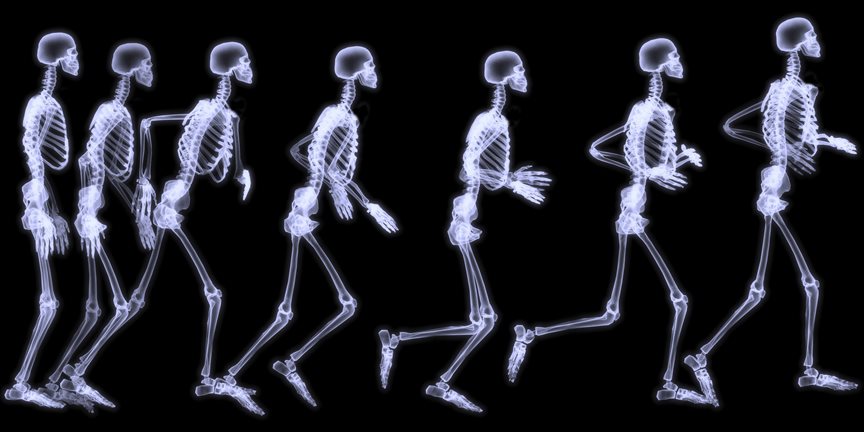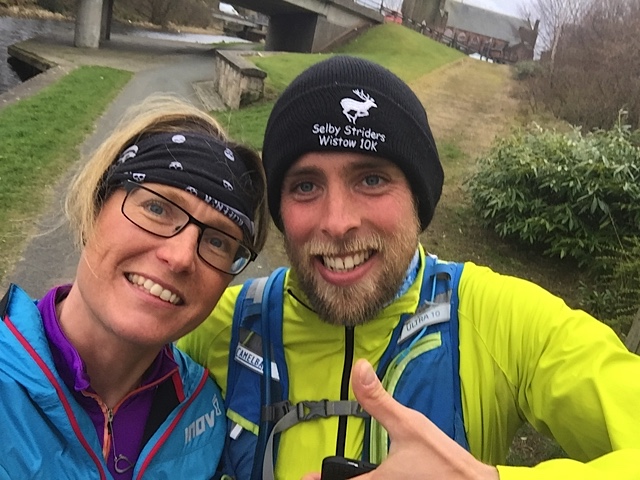Last updated: 06-Nov-18
By Ian Corless
In a previous life, James Cracknell spent too much time mucking about in a boat with big blokes wearing too much Lycra. He was lucky enough to win gold medals at the Sydney and Athens Olympics. After that he stupidly rowed across the Atlantic and did a race to the South Pole (both filmed by the BBC).
After Antarctica he decided the cold wasn’t for him and entered the Marathon des Sables where he did okay and came 12th. At the time that was the highest place a Briton had ever come until Danny Kendall upstaged the Olympian.
James’s MDS progress was filmed by the Discovery Channel. This was followed with another film documenting a journey from LA to New York: cycling from LA to Death Valley running through Death Valley then remounting and cycling Route 66 to Lake Erie, rowing Lake Erie then cycling to New York and finally swimming to the Statue of Liberty.
Unfortunately James didn’t complete this journey as a fuel truck in Arizona hit him! Placed in a coma and a two-month stay in a Phoenix hospital, James was close to the edge. It’s been a long journey and one that is ongoing.
However, in 2015 James is coming back! Firstly he will head to South Africa and join elite ultra runner, Nikki Kimball at the Richtersveld Wildrun. And should all things go well, James will return to Death Valley, the place of his horrific accident, and put the experience well and truly behind him by tackling the Badwater 135.
In an extensive interview, I caught up with James, discussed his past and his eagerness to push himself and asked why the Richtersveld Wildrun?
*****
IC: This interview has been 18 months in the making, I first met James Cracknell at the Marathon des Sables expo in the UK a couple of years ago. He promised me then that he would give me an interview and now he’s here finally. James welcome.
JC: Eventually yeah, I’m sorry about that, I don’t normally keep people waiting like that.
IC: Most people will know your background but one never knows, so it only seems right that we take you right back. Can you tell me how things all started, how did you start on what turned out to be an incredible career?
JC: I was lucky enough to go to a school that offered rowing as a sport, they hooked you into rowing in the summer and then when winter comes it’s pretty rubbish. Everyone in rowing has to work together so it’s not how good your best person is but as a team it’s how good you can get your worst person to be. So it’s a very all-in sport and you have to have trust in your team mates.
IC: When you were training did you move around in terms of the type of rowing that you did? Did you particularly specify a type of rowing?
JC: Rowing is where you have one oar in two hands and sculling is where you have one ore in each hand. When you’re rowing you generally row on one side of the boat, and because your body twists around that way it’s unusual for people to row both sides. Very quickly I was set on portside and when you’re settled you then row in boats of two people, four people or eight people. The smaller the boat the harder it is to row but in school and university level it’s done in eight man boats usually. I was from a small school so we did quite a lot of racing in pairs and fours as well as that’s what the international system bases you on. Both how fast you go in a pair and on a rowing machine; so you need to be able to row in any sort of boat.
IC: Ok, and when was the breakthrough for you, 1996?
JC: The breakthrough for me, to be honest, came when I was the best in the world for my age group. That was the target for me, we won the gold medal in the World Championships in 1990, and it was a real special race from the start, where everyone was under 18 or supposed to be. It was East Germany, the Soviet Union, Yugoslavia, Romania, Australia and us. I don’t think any of the Soviets where under 18.
IC: You qualified for the double scull in the 1996 Olympics. That must have been the turning point, where things started to click, in terms of Olympics, gold medals and world championship wins.
JC: I broke my shoulder and they asked me to go as a reserve and going reserve in a rowing race is rubbish; you just sort of basically watch! I’d rather go as something else or basically I would just be going to the Olympics to get the kit. In 1996, I was selected and didn’t get injured but that was when I got tonsillitis on the day of the opening ceremony. This meant not only that I couldn’t race, but I got put in the quarantine booth so I didn’t make anyone else ill. It was at that point I decided to walk away and do something else, as I hadn’t even got to the Olympic start line, so for me that was the moment I decided to carry on.
IC: Do you think that’s what it takes, James, in everything that you’ve done, is it an element of having to put your hands up on either side of your face and blinker your eyes and focus 110%, a determination to achieve?
JC: It’s definitely determination to achieve. The first thing is when you’re rowing you’re holding someone else’s dreams in your hands as well. You’re not going to let them down and they are not going to win without you. Whereas in a marathon it’s only you and you will know if you have backed off slightly or not.
The second thing is that I was determined to get back to the Olympics and have no ‘if onlys.’
The third thing is to treat every race as though you had lost it… as a team it meant we were setting a standard continually, we all bought into the fact that 2nd place, 3rd place, 4th place etc. all meant as much as 1st place so it didn’t matter where we came in in the final, we would rather not get a medal, than settle for silver.
IC: I remember watching ‘Gold Fever’ which was the documentary that was screened after the 2000 Olympics and all of the training that you guys put yourself through; it’s serious stuff. Looking back, is that some of the hardest training that you have ever done?
JC: Every sport is hard, for us we only used to race four times a year. So much of the training was on our own. It was up to us to raise the standard, so we used to train three times a day seven days a week for six weeks. The only way is by hard work so that was something we got into. You go 100% and have no regrets in your life.
IC: I think everyone who is reading this who knows a little about you is going to say that’s the characteristic that you have brought to everything you have ever done; 110% commitment.
So you got the gold medal in 2000. Then you followed that with the gold medal in 2004, but a big contrast in those two medals in the way that you got them.
JC: Massive difference, in 2000 we had three World Championships leading up to it so we knew sitting on that start line that ‘our best’ would win. We had trained ourselves to the point where our worst was everyone else’s best so even if we had a shocker on the Olympics final we would win. When we got the medal our coach said, ‘that wasn’t very good.’ We scored it (me and Steve Redgrave) a 6/10. The second time is very different. A guy said to us any Olympian can do it once, but World Champions do it again. We believed our best was good enough. We just had to go and do it but we had to all buy into it, otherwise we were stuffed. On that final it was the best race we had so that’s what made it easy for me to retire from rowing.
IC: It’s amazing, I always try and get my head around these things, these four year blocks that culminate in one day. The pressure and the planning that must go into it, it’s phenomenal. What was the mental process after that second gold medal? In 2006 you effectively retired from rowing.
JC: I decided I wasn’t really ready after Athens in 2004 to hold other people’s dreams in my hands and I saw rowing ‘4,000 miles’ as a challenge to keep fit. Funny, it turns out it didn’t make me want to row anymore! However, I did enjoy the different conditions, instead of going .004 seconds faster.
IC: 2005/2006 is when you met Ben Fogel and started this love/hate relationship.
JC: He isn’t competitive at all whereas I am. He is very stubborn to finish something that he has started though and is actually a lot more positive than me. I definitely look on the negative side of things. He is good company and positive about getting to the end, but not bothered whether it’s first or last.
IC: So that’s a massive frustration for you?
JC: It is yeah, but I realised you can’t win a race if you don’t make a finish line to start with.
IC: I remember seeing quite a lot of footage of the South Pole race and that journey seemed to be epic from many different perspectives. It almost needed Ben as a calming factor but also needed you as the driving factor. Have you found that has been an important working relationship for you to eventually succeed?
JC: The long-term goal setting that I had from the Olympics was incredibly useful for planning and training for an event. I am used to training for something a long way off and that is one of the points of doing the training way in advance; I enjoy it. I am competitive. When we were carrying stuff to the North Pole we all used to share the weight and for me I didn’t complain if I was struggling. I would end up getting blisters and instead of addressing them would carry on for 18-hours.
So, we get to the North Pole and we are waiting for a plane and a guy comes up to me and says, “You are carrying lots of bags, you should do the Marathon de Sables.” For some reason, because I was in the freezing cold I thought running in a dessert would be brilliant idea. Part of the reason I let my feet get bad and make a few bad decisions is because it was a competitive environment.
IC: You had already started to run marathons at this point hadn’t you; you had gone just under 3 hours at London?
JC: I was under 3 a couple of times, I was pretty fit but it’s about the right decision making for expeditions. Fitness will only get you so far.
End of part one.
In our next article we feature James’s experiences in the Marathon des Sables in 2010 and his tips for those taking part in April 2015 or planning to take part in the race in future years. His 2015 comeback plans include the Richtersveld Wildrun and the Badwater 135. Read it here.
*****
Images ©jamescracknell
You can follow James at Richtersveld Wildrun on iancorless.com and on Twitter @talkultra





